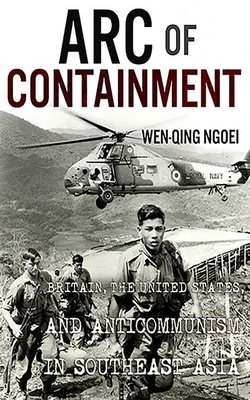Wen-Qing Ngoei
Dr. Wen-Qing Ngoei is Assistant Professor of Humanities in the School of Social Sciences at the Singapore Management University.
He graduated with a PhD in History from Northwestern University, specializing in U.S. foreign relations with Southeast Asia in the twentieth century. Before joining SMU, he completed postdoctoral stints at Northwestern and Yale University, and was Assistant Professor of History at Nanyang Technological University from 2016 through 2019.
His first book, Arc of Containment: Britain, the United States, and Anticommunism in Southeast Asia (Cornell University Press, 2019) traces how British neocolonial strategies intertwined with Southeast Asian anti-communist nationalism to usher the region from formal colonialism to US hegemony. It has been listed as one of the best and top-selling books on nationalism and colonialism by BookAuthority, featured on CNN and Forbes as the world’s leading site for book recommendations.
His essays have appeared in journals like Diplomatic History, the Journal of American-East Asian Relations (JAER) and International Journal: Canada’s Journal of Global Policy Analysis. His JAER essay on the origins of the domino theory won the 2014 Frank W. Gibney Prize. He has co-authored (with Anne Foster) the introduction to a recent Diplomatic History forum on the history of US-Southeast Asian relations which also carries his essay on U.S. policy and the Chinese diaspora of Southeast Asia. He also has a number of forthcoming essays on Southeast Asian foreign relations, British neocolonialism and the Vietnam War.
He is currently working on a new research project on how Southeast Asia’s culture-makers–novelists, playwrights, poets and artists–shaped the region’s foreign relations from the 1970s through the 1990s.
Wen-Qing has also published commentaries on ASEAN and the Sino-US Rivalry during the Cold War, the origins of US hegemony in East and Southeast Asia, US fixations with British counterinsurgency in Malaya, reflections on Brexit, the domino theory, the legacy of American policy toward Vietnam and Southeast Asia, Cold War policies of Southeast Asian nations and US policy toward Asia in the Trump administration.
Perspectives, the magazine of the American Historical Association, interviewed him in August 2017 for its regular Member Spotlight segment.
His research has been supported by fellowships and grants from the Society for Historians of American Foreign Relations (SHAFR), the Nicholas D. Chabraja Center for Historical Studies, the Rajawali EDGS (Equality Development and Globalization Studies) program, the Brady-Johnson Grand Strategy Program in International Security Studies at Yale University, and the Ministry of Education (Singapore) Academic Research Fund.
Source: wqngoei.wordpress.com

